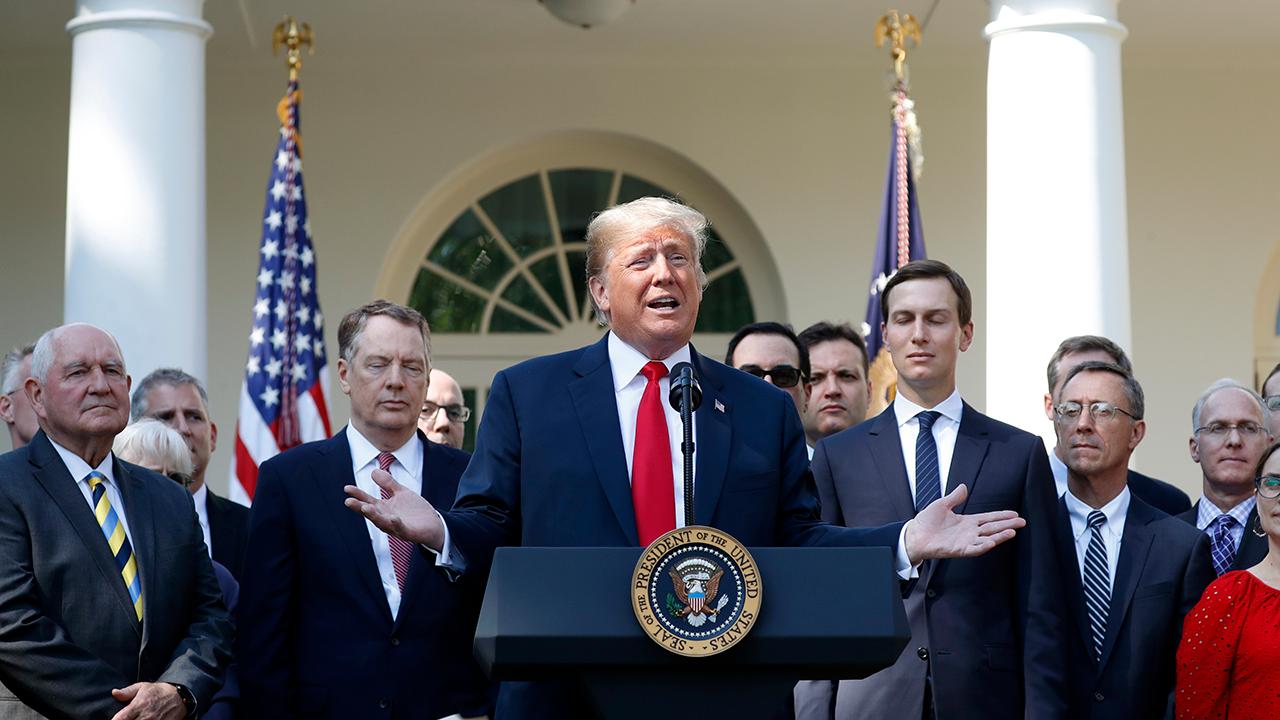Trump says USMCA doesn’t lift steel, aluminum tariffs
Despite reaching a new trade agreement with Mexico and Canada over the weekend to replace the North American Free Trade Agreement, President Trump said at the White House on Monday the key U.S. trading partners would still not be exempted from U.S. steel and aluminum tariffs.
Trump said the tariffs would remain in place “until such time as we can do something that would be different, like quotas perhaps, so that our industry is protected. We are not going to allow our steel industry to disappear, it was almost gone.”
U.S. Trade Representative Robert Lighthizer added that the tariffs are a completely separate issue from the trade deal as far as the administration is concerned. He reiterated that the U.S. is currently engaging in talks with the aim of preserving the current program and protecting industry needs.
Trump also said he is employing tariffs as a negotiating tactic, which were effective in helping solidify the USMCA.
“Without tariffs we wouldn't be talking about a deal,” he said.
Canadian Prime Minister Justin Trudeau told NBC during an interview in June that the steel and aluminum tariffs were “insulting and unacceptable.”
Meanwhile, the president said he would continue to employ tariffs on other countries only in instances where the governments are “absolutely not willing to do what’s fair and reciprocal.”
With regards to the European Union, for example, he said the White House would “respectfully” put tariffs on cars if a satisfactory deal can’t be reached.
Trump also called out India for charging high tariffs on U.S. exports, specifically Harley-Davidson products.
In regards to China, Trump said the U.S. could “go $267 billion more” when it comes to tariffs on products.
The 25 percent steel and 10 percent aluminum tariffs were implemented in March. Some countries were granted exemptions, however Mexico and Canada did not make that list.




















